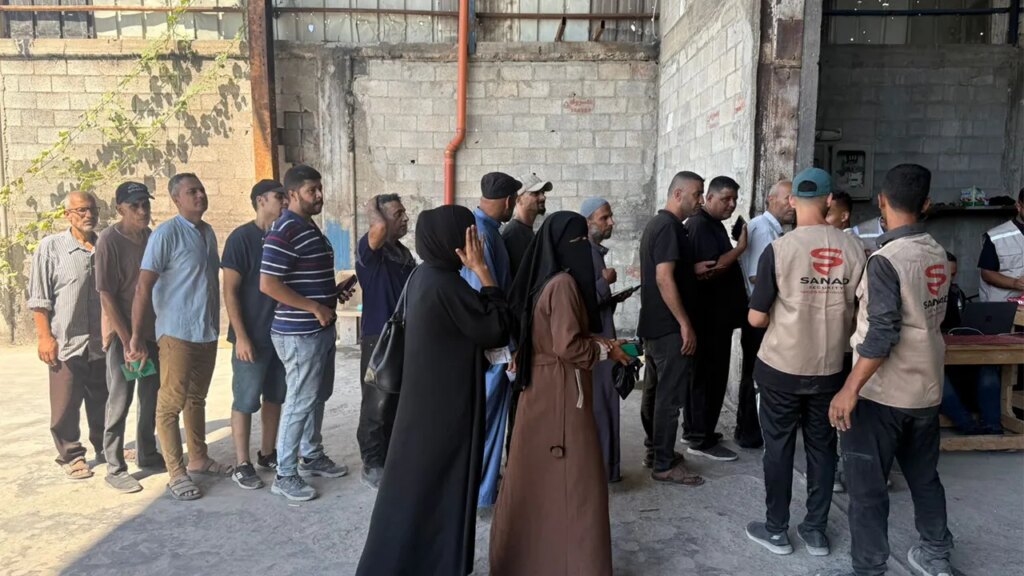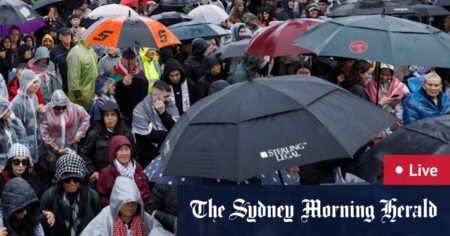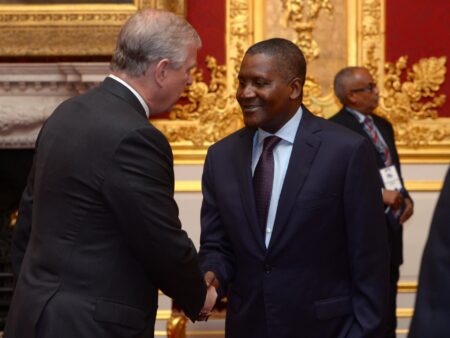NEWYou can now listen to Fox News articles!
FIRST ON FOX – In a war-torn part of the Middle East, where corruption and violence often determine who gets to eat and who goes hungry, one woman chose to challenge the system.
When much of the world had written off northern Gaza as unreachable, 30-year-old east-Jerusalem resident Sarah Awaidah and her team carved out a lifeline. Under the umbrella of Mena Aid, a regional partner coalition operating through the Multifaith Alliance (MFA), and in coordination with Israeli authorities, she built a system that moved hundreds of trucks of food and supplies into Gaza – bypassing Hamas and private contractors who had turned hunger into a business.
The result: more than 100,000 families fed. The cost: her own safety. “I never imagined that creating a safe, independent humanitarian route would become the reason my life might end,” Sarah Awaidah told Fox News Digital in an exclusive interview that took place in a safe house in Israel.
TRUMP OFFICIALS VISIT GAZA AID SITES AS INTERNATIONAL COMMUNITY PRESSURES ISRAEL
“After delivering 346 trucks of aid between September 2024 and February 2025, we reached 100,622 families,” Awaidah said. “We decided to scale up distribution on June 30, 2025, at a time when no one was able to get anything into Gaza because of looting, chaos and multiple layers of obstruction on the ground.”
Operating through Mena Aid, Awaidah’s team designed an alternative route to deliver food and essential supplies.
In Israel, a trusted logistics company transported the goods from the port of Ashdod to the Kerem Shalom and Zikim crossings. Inside Gaza, another logistics partner handled transport, while Awaidah’s own staff – coordinating in real time with Israel – shadowed every shipment.
“Once the aid crosses into Gaza, it’s picked up by another trusted logistics partner and escorted by our own team members.
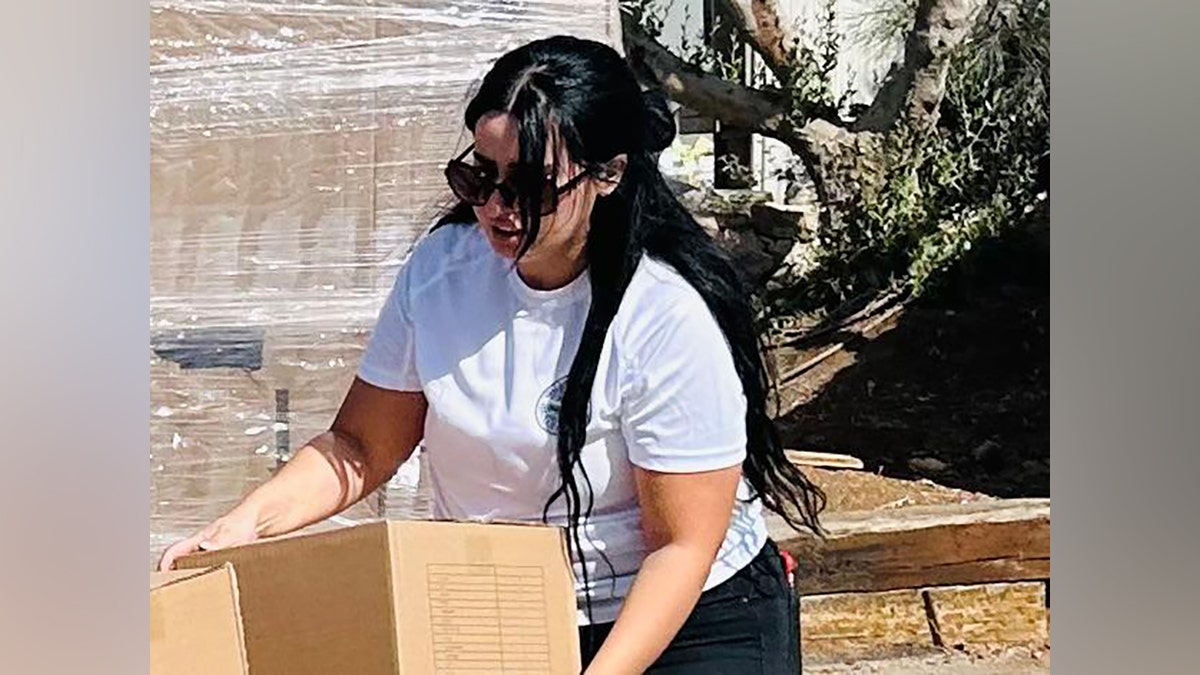
“Our teams are present during offloading and accompany the aid from the crossing to secure warehouses. Inside the warehouses, we begin distribution immediately – aiming to deliver everything the same day, and at most within two to three days. Nothing is allowed to sit idle.”
That level of control allowed them to achieve what few others could: reaching northern Gaza, where people had not seen a staple supply of food for months.
Her breakthrough exposed a darker reality – an economy where hunger itself has become a business.
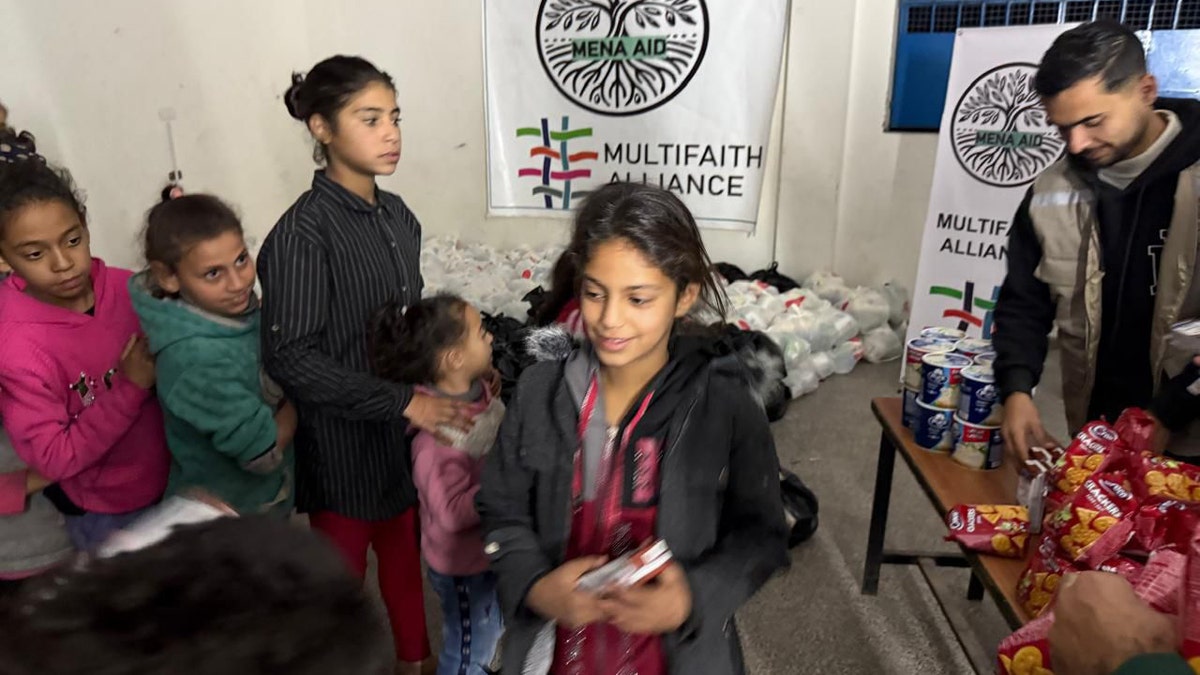
GAZA HUMANITARIAN FOUNDATION: WHAT TO KNOW ABOUT THE US-BACKED AID GROUP
“There’s a lot of private sector businessmen – some associated with Hamas and other political groups – who try to use aid to make millions,” she said. “Because there’s such a shortage of goods, and prices are so high, some steal aid and sell it in the market. Others try to take over the supply routes so they can resell it.”
According to Awaidah, her team’s success threatened those who profit from scarcity. By flooding the market with free goods, they not only fed families but also drove down the inflated prices charged for basics like sugar and flour.
“If there’s no sugar in Gaza, and we bring it in for free, they can’t keep selling it at outrageous prices,” she said. “So we became their problem.”
Israeli authorities also tried to cut off these private-sector schemes by shutting down routes that allowed commercial profiteering. While this helped curb some corruption, it also made the remaining humanitarian channels more dangerous.

“The private sector was blocked, and so those who lost their profits started trying harder to threaten and infiltrate the humanitarian route,” she said. “They couldn’t control it, so they tried to break it – and me.”
The attacks on her came quickly. “I began receiving death threats – not just from Gaza, but from the West Bank… heartbreakingly, some came from people I once trusted.”
One of the most painful betrayals came from someone close to her, she said, “I even discovered that I was in a relationship full of lies,” she said. “That person was part of a gang that wanted to exploit the aid operation – and he tried to use me too. But I stood firm. I made sure he, and people like him, never got near it. And now, my life is at risk because I refused to let the private sector hijack aid for commercial gain, or let political actors bend it to serve their goals.”
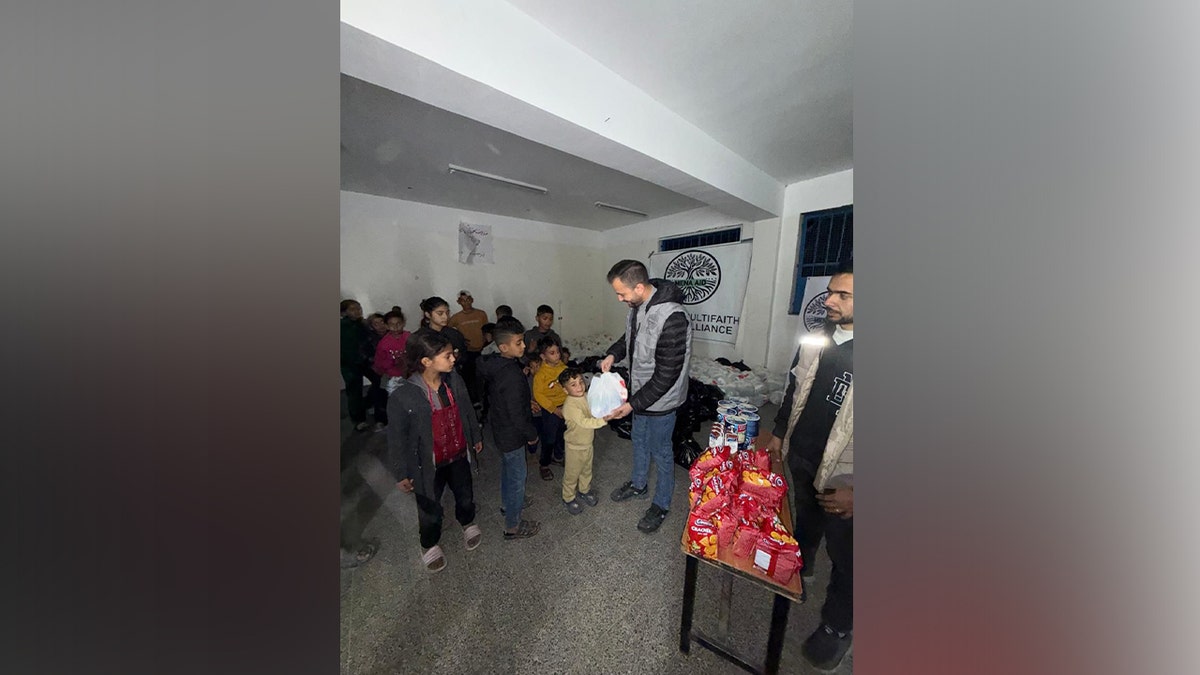
For Awaidah, the families she helps are the reason she refuses to quit. “We created a distribution model based on verified beneficiary lists, using ID checks to ensure fair and dignified access to food,” she said. “People stood in line calmly, organized, even in impossible conditions. That’s something the media rarely shows – the dignity and patience of the people.”
In the past month alone, her group has delivered 75 trucks and has another 112 on the way from Ashdod. Each day, she focuses on the mission, even as the threats grow.
“What broke me most wasn’t the threats from strangers – it was realizing that people close to me were part of it,” she said. “It’s easier to fight enemies from the outside. But when it comes from your own circle, it cuts deeper. Still, that only confirms we’re doing something right. If they’re losing their minds over this, it means the mechanism we built works. It means it’s secure. It means they couldn’t find a way to manipulate it, so they tried to break me instead.”
She knows the risks. But for her, the alternative is worse. “I will not stop. And they will not stop me,” she said, “I will continue delivering aid to the people who need it, no matter the threats. That’s my promise.”
For Awaidah, standing up to corruption has come at a steep personal cost. But for the families in Gaza who have stood in her food lines, she has already changed what once felt impossible: getting a fair share of help, without a price tag.
Read the full article here







